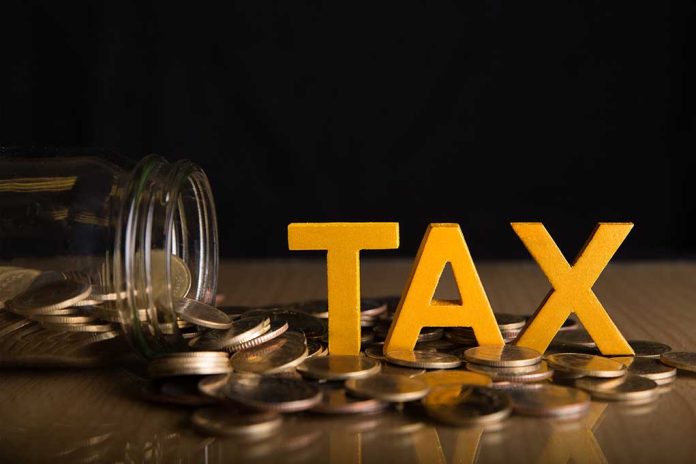
North Dakota voters are set to decide on a measure that could make their state the first in the nation without most property taxes, potentially reshaping the state’s fiscal landscape.
At a Glance
- North Dakota voters may eliminate most property taxes in an upcoming ballot measure.
- The measure would require the state to replace $3.15 billion in lost revenue every two years.
- Supporters claim the state can afford the change without cutting services or raising taxes.
- Opponents argue it could lead to cuts in essential services and harm economic competitiveness.
- If passed, the measure would take effect on January 1, 2025.
A Groundbreaking Proposal
North Dakota voters are poised to make a decision that could fundamentally alter the state’s tax structure. The proposed measure, known as Initiated Measure 4, would prohibit state and local governments from levying taxes on the assessed value of real or personal property, effectively eliminating most property taxes in the state. This move has ignited a fierce debate about fiscal responsibility, local control, and the future of North Dakota’s economy.
The measure, slated for the November 5, 2024 ballot, would require the state legislature to replace an estimated $3.15 billion in lost revenue every two years. This staggering sum has raised concerns about the feasibility of the proposal and its potential impact on state services.
North Dakota voters may end most property taxes. Government programs could face huge cuts https://t.co/dEsXBb21a2
— KSAT 12 (@ksatnews) October 27, 2024
Supporters’ Vision
Proponents of the measure, led by the group End Unfair Property Tax and former state representative Rick Becker, argue that property taxes are fundamentally unjust and place an undue burden on homeowners. They contend that North Dakota’s robust economy and oil tax revenues make this radical change not only possible but necessary.
“We are such a rich state per capita that we can actually make this conversion and be able to afford it without increasing taxes and without cutting services,” argues Rick Becker, an ex-Republican lawmaker.
Supporters maintain that eliminating property taxes would provide significant relief to homeowners and businesses, potentially stimulating economic growth and making North Dakota more attractive to investors and residents alike.
Opposition Concerns
Critics of the measure, including a coalition of over 100 organizations, warn of potentially dire consequences if property taxes are eliminated. They argue that the proposal could lead to cuts in essential services such as education, healthcare, and infrastructure maintenance.
“It would be absolute chaos for the Legislature and for the appropriations process, something that we’ve never done before,” says state GOP Rep. Mike Nathe. “We’ll be walking blind, that’s for sure, as far as how to go about doing this.”
Opponents also worry that the measure could shift the tax burden to other areas, potentially leading to increases in income and sales taxes or the introduction of new fees to cover revenue gaps. This, they argue, could make North Dakota less competitive economically and disrupt the state’s fiscal stability.
As North Dakota voters prepare to make this momentous decision, the debate continues to intensify. The outcome of this vote could set a precedent for tax policy nationwide and significantly alter the fiscal landscape of the Peace Garden State for generations to come.
Sources
- North Dakota voters may end most property taxes. Government programs could face huge cuts
- North Dakota Considers Eliminating Property Taxes
- New estimate increases projected cost of property tax measure





